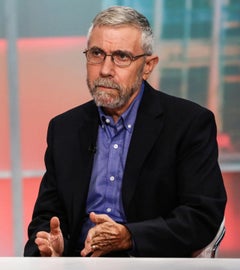MI SELECCIÓN DE NOTICIAS
Noticias personalizadas, de acuerdo a sus temas de interés

So we should have known that the BRICs (the collective label for Brazil, Russia, India and China) were heading for a nasty fall; and sure enough, emerging markets have gone from heroes to dogs in practically no time.
But what are the implications for the world economy? Emerging markets are out, but advanced countries are in again - so isn’t this a wash? Unfortunately no, because there is an important asymmetry here.
It’s true that all commodity exporters are being hit. But they are responding differently. Take, for example, monetary policy in Brazil versus that in Canada. The latter nation has kept interest rates low; in fact, Canada might even do some fiscal stimulus if the economy continues to weaken.
But Brazilian policy is reinforcing the country’s slump, with interest rates going up and fiscal tightening in prospect. This is not because the Brazilians are stupid. It’s partly because they came into this situation with a relatively high inflation rate, so they aren’t as relaxed about currency depreciation as the Canadians can afford to be. But it’s also because emerging markets still suffer to some extent from “original sin” - underdeveloped capital markets, and a tendency to borrow in a foreign currency. This sin isn’t nearly as strong as it was 15 years ago, when the economists Barry Eichengreen and Ricardo Haussman coined the term, but corporate dollar-denominated borrowing after 2008 brought it partially back.
The result is that as markets lose faith in emerging economies,hese economies are pushed into contractionary policies. At the same time, the advanced economies that are receiving the capital inflows aren’t responding with expansionary policies. So the overall effect of the emerging markets’ collective disillusion is a global turn toward contraction. And while I still think it’s not enough to produce a worldwide recession, I am less sure than I was a few months ago.
Oh, and an interest rate hike in the United States - which would not just hurt the American economy but also, via a stronger dollar, emerging markets - would do a lot to make things worse.
Climate Villains
Here are two stories you should read in tandem.
First, it’s now very clear that Exxon has been spending millions of dollars to prevent public action against a slow-motion catastrophe that the company was well aware was on its way. According to Scientific American, Exxon’s own research pointed to global warming as a serious problem almost 40 years ago - but it has gone all out to confuse the issue, trying to get itself another few decades of profits at humanity’s expense. The cynicism is remarkable.
Meanwhile, David Roberts at Vox wrote a piece pointing out the McCarthyite tactics that the House Science Committee has been using to persecute and intimidate scientists, especially but not only those working on climate.
If we fail to grapple with climate change in time to avoid disaster - which seems ever more likely - it won’t be because we didn’t have the knowledge to fully comprehend the problem, or the tools to fix it. It will because of cynicism and greed that, given the stakes, rise to the level of evil.